Directory
- Share
OLUWASEGUN AFOLARANMI
- Scholar
- Nigeria
- 2021 PhD Medical Science at Cancer Research UK Cambridge Institute
- Homerton College

OLUWASEGUN AFOLARANMI
- Scholar
- Nigeria
- 2021 PhD Medical Science at Cancer Research UK Cambridge Institute
- Homerton College
The idea of harnessing the immune system to treat cancer is fascinating to me. Moreover, during my medical training in Nigeria, I was deeply moved by the experiences of cancer patients, especially with the very limited treatment options available. This combination of curiosity and compassion inspired me to pursue a career at the intersection of excellent patient care and cutting-edge cancer research. I subsequently received the Clarendon scholarship for a Masters at the University of Oxford, where my research was on the innate immune cGAS-STING signalling in cancer, under the supervision of Dr Eileen Parkes. At Cambridge, I have joined Dr Maike de la Roche's group to explore how hedgehog signalling is orchestrated in cytotoxic immune cells during the antitumor response. Mechanistic insights from this work, and others, will potentially enable better design of advanced cellular therapies, bringing hope to numerous patients. Ultimately, I plan to contribute significantly to efforts aimed at expanding access to transformative therapies globally, and alleviate the unacceptable disparities currently observed. I feel incredibly honoured to have joined the Gates Cambridge community and look forward to an enriching experience with other young leaders from across the world.
Previous Education
University of Oxford Integrated Immunology 2021
University of Ibadan Medicine and Surgery 2019
Fadi Amer
- Scholar
- Lebanon
- 2021 PhD Development Studies
- Queens' College

Fadi Amer
- Scholar
- Lebanon
- 2021 PhD Development Studies
- Queens' College
As a scholar of Lebanese origin, born and raised in the diaspora, I have always grappled with the historical processes underlying such displacement, with its multidimensional precarity at home and abroad. My family, like countless others, has suffered tremendously at the hands of a civil war that tore my country apart for 15 years, and left scars persisting into the present. Indeed, the past year and a half have seen the violent eruption of the structural contradictions emerging from this conflict and those which facilitated its emergence in the first place, leading to the contemporary collapse in Lebanon's economy and governance structures alongside the explosion of the Beirut port - the lifeline and microcosm of a country dependent on imported goods, incomes, and capital for its livelihood. Accordingly, I hope to devote myself to understanding the complex origins of these deep-rooted issues, that I may contribute to improving living conditions in my home country. I believe that a critical understanding of the past ought to illuminate genuine paths to reform in the coming time. In other words, Sisyphus' happiness is inseparable from the curse which condemned him to his boulder and the trickery which provoked the wrath of Zeus.
Previous Education
University of Cambridge Development Studies 2020
University of Toronto Economics & Philosophy 2019
Ila Ananya
- Alumni, Scholar
- India
- 2021 MPhil Social Anthropology
2022 PhD Social Anthropology - Fitzwilliam College
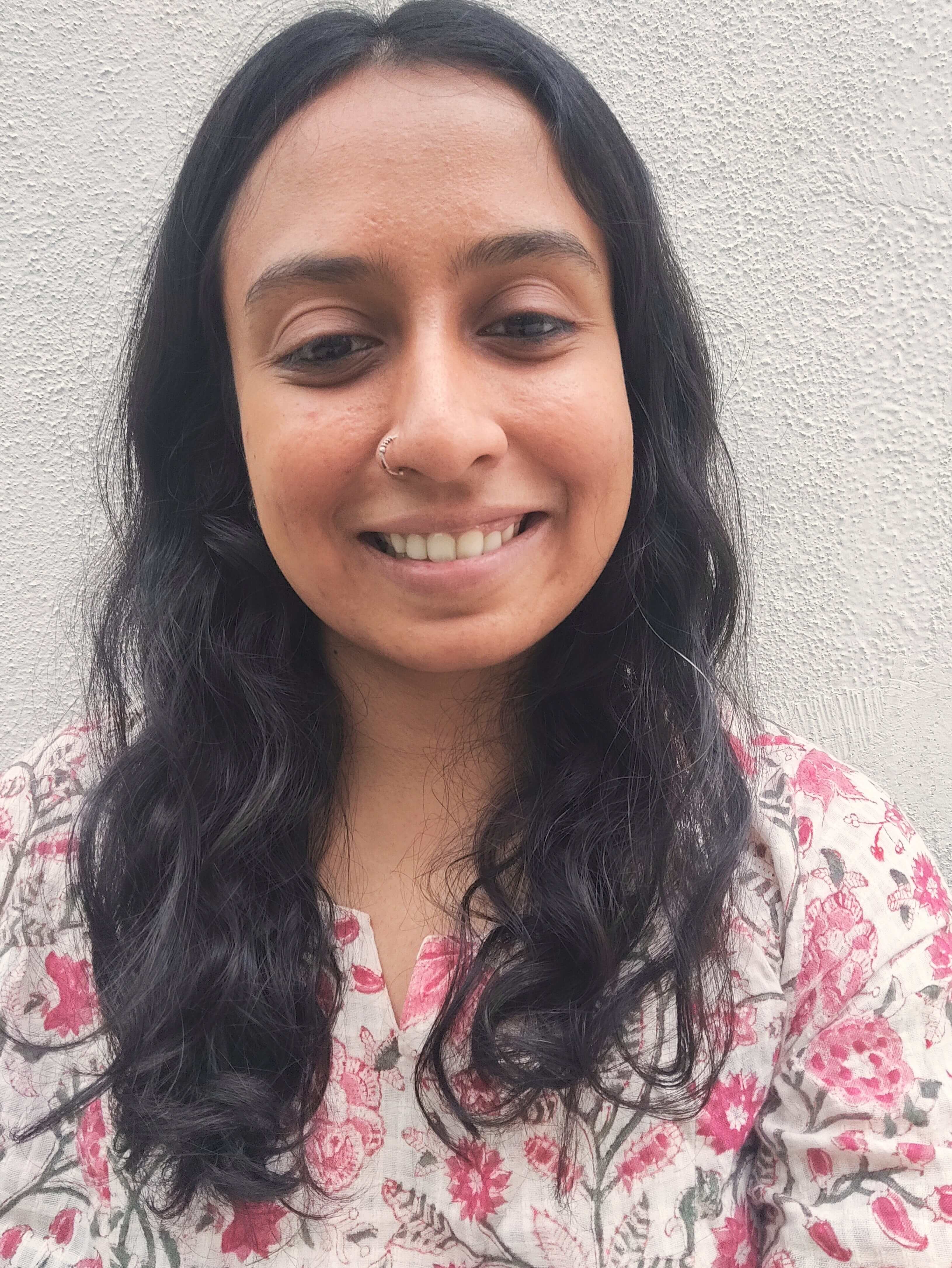
Ila Ananya
- Alumni, Scholar
- India
- 2021 MPhil Social Anthropology
2022 PhD Social Anthropology - Fitzwilliam College
I came to anthropology through an interest in narrative, and a desire to rethink my engagement with fiction, life writing, reportage, and research – writing forms that I have been moving between since I was an undergraduate. As a journalist and a university teacher, I often found myself returning to read ethnographies, with their focus on producing work that centred our different subjectivities, and grappling with the ethical and conceptual challenges of navigating these. So far, my research has been concerned with the political lives of Indian students, what Indian higher educational spaces engender, and who they exclude. For my PhD, I hope to trace how young people from ‘Northeast’ India navigate the moral and affective aspects of their ‘becoming’ when they travel to ‘mainland’ Indian cities to study. Given the region’s history of state repression, ethnic tensions, and the racialised tendency of many Indians to homogenise their identities, I am interested in foregrounding friendship, intimacy, and aspiration, to understand how these young students relate to each other from across their social subjectivities and ethnic and class locations. I’m excited and humbled to be part of the Gates Cambridge community, and to continue to be challenged by and learn from my peers.
Previous Education
University of Cambridge Social Anthropology 2022
School of Oriental & African Studies (University o Gender Studies 2018
St. Joseph's College, BU English, Journalism,Psychology 2017
Rishabh Bajoria
- Scholar
- India
- 2021 PhD Law
- King's College
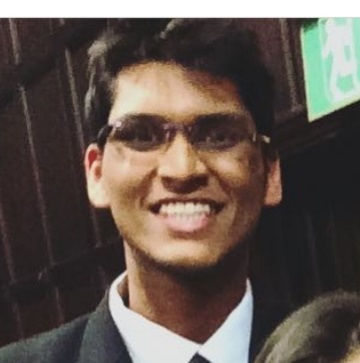
Rishabh Bajoria
- Scholar
- India
- 2021 PhD Law
- King's College
In 2017, I worked with the Association of Parents of Disappeared Persons (APDP), Srinagar, where I drafted an International Law manual on Enforced Disappearances. Participating in APDP’s engagements with the OHCHR taught me about the potential of international legal institutions. However, the everyday experience of observing a state against a society reinforced the explanatory limits of purely doctrinal legal scholarship. This was a transformative experience. These encounters combined with my time at Jindal Law School and the University of Melbourne have motivated and equipped me to pursue a doctoral project interrogating the historical trajectories of international law through the Indus Waters Treaty, 1960. The Treaty, signed by India, Pakistan and the World Bank, divides access to the waters of the lucrative Indus basin flowing through the disputed region of Jammu and Kashmir. Both states claim ownership over Kashmir but neither involved Kashmiri voices while dividing waters crucial to socio-cultural lives in the Valley. This project will reflect my continued political and scholarly commitment to interrogating large historiographical questions by taking the lives and aspirations of ordinary people -Kashmiris- seriously.
Nadia ben Hassine
- Scholar
- Netherlands
- 2021 PhD Philosophy
- Jesus College

Nadia ben Hassine
- Scholar
- Netherlands
- 2021 PhD Philosophy
- Jesus College
In discussions on practical topics, there is always a great amount of theoretical knowledge embedded in contending positions. Whether we are judging something to be morally wrong or arguing that a policy is unjust, there is an extensive background to our practical perspectives. During my BA in Philosophy at the University of Amsterdam, I developed a strong interest in uncovering and assessing this background. This pointed me in the direction of methodological questions such as: how should we determine the meaning of a concept or, to what extent should theories be informed by practical issues? When the concepts or theories under analysis are social, our answers to such methodological questions greatly impacts our view of practical issues. During my MPhil in Philosophy at Cambridge, for example, I researched whether notions of justice established through abstract theorising can capture why something is unjust. Because of the importance of using a method that can critically assess practical problems, I intend to undertake my doctoral research on the intersection between metaphilosophy and social philosophy, looking at the ability of metaphilosophical views to accommodate critical reflection on historical and political issues.
Previous Education
University of Cambridge Philosophy 2021
University of Amsterdam Philosophy 2020
Tathagat Bhatia
- Alumni
- India
- 2021 MPhil History and Philosophy of Science and Medicine
- Churchill College
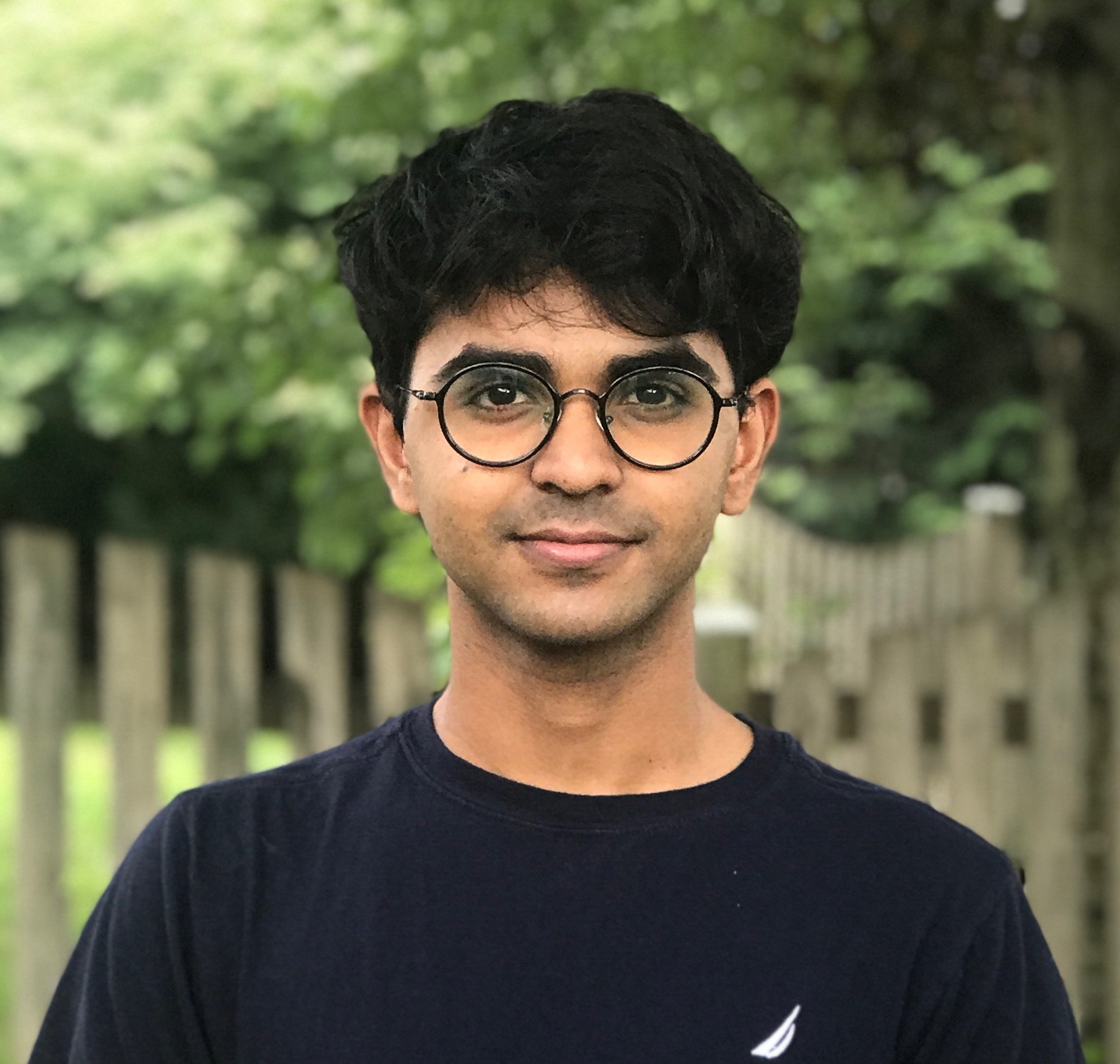
Tathagat Bhatia
- Alumni
- India
- 2021 MPhil History and Philosophy of Science and Medicine
- Churchill College
I grew up in Lucknow, India and moved to the US to attend the University of Pennsylvania, where I am majoring in history of science with a minor in Russian studies. My research interests are situated at the generative intersection of environmental history and science and technology studies, with a focus on South Asia. The question that lies at the center of my research is: what can history teach us about the environmental problems we are mired in today? But these interests are more than scholarly. As we confront a world with a fast changing climate, more and more of us realize that the environmental is also the emotional. As an MPhil student in the History and Philosophy of Science Department at Cambridge, I hope to better understand how we might bring a historical sensibility to our contemporary discussions about remediating the climate crisis. I am thrilled to work along these lines as part of a community of incredibly driven Gates Cambridge scholars who are committed to solving some of the most pressing challenges of our times.
Previous Education
University of Pennsylvania Science, Technology & Society 2021
Kayla Brown
- Alumni
- United States
- 2021 MPhil Sociology
- St John's College
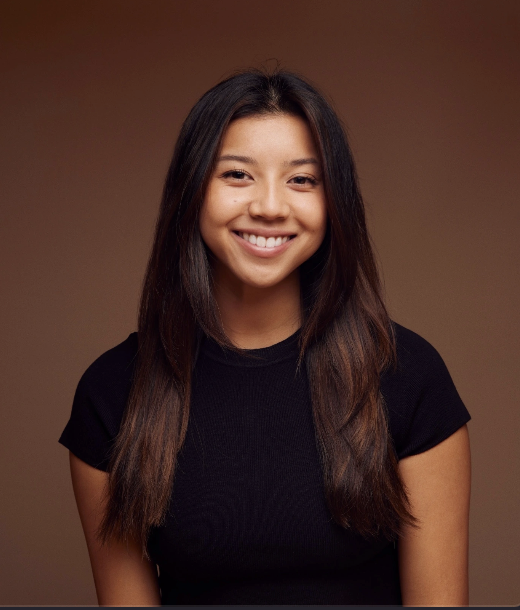
Kayla Brown
- Alumni
- United States
- 2021 MPhil Sociology
- St John's College
I was raised in the San Francisco Bay Area and earned my B.A. in Media Studies and Public Policy from UC Berkeley. My MPhil dissertation examined how human rights and ethics employees working for “Big Tech” companies seek to institutionalize new norms by by accruing or leveraging different forms of capital. I now work as a responsible business consultant and researcher and am based in New York City.
Previous Education
University of California, Berkeley Media Studies 2020
Venkata Chaluvadi
- Alumni, Scholar
- United States
- 2021 MRes + PhD Physical Sciences: Nanoscience and Nanotechnology
- King's College

Venkata Chaluvadi
- Alumni, Scholar
- United States
- 2021 MRes + PhD Physical Sciences: Nanoscience and Nanotechnology
- King's College
As a first generation Indian-American, my lived experiences both growing up in rural South Carolina and visiting India strengthened my resolve in addressing today’s global energy challenges. Throughout my undergraduate in Materials Science and Engineering at Clemson University, I experienced many different aspects of research. Ultimately, I fell in love with the power of high-throughput computational studies and its ability to help gain a better understanding of composition-structure-property relationships. During my study of Nanoscience and Nanotechnology at Cambridge University, I hope to combine molecular modeling techniques with informatics for the intelligent design of advanced nanomaterials at the atomic level, specializing in battery components. In particular, I am interested in optimizing ionic transport and interfacial reactions of MXene electrodes. By developing skills in both computational and experimental realms, I hope to better bridge the gap between the two and lead crucial collaboration in the space. By being a part of the Gates-Cambridge community, I will be surrounded with scholars and resources alike that will amplify my opportunities to explore the world and pursue my goals in innovative directions.
Previous Education
Clemson University Materials Science and Engr 2021
Heejung Chung
- Alumni
- United States
- 2021 MPhil + PhD Computational Methods for Materials Science
- Trinity College

Heejung Chung
- Alumni
- United States
- 2021 MPhil + PhD Computational Methods for Materials Science
- Trinity College
My aspirations to advance sustainable energy using computational materials research emerged from the convergence of pretty disparate influences. I first fell in love with materials science when I saw how different ceramic firing techniques affect the finish on pottery. Born and raised in the California Bay Area, I'd also grown to appreciate the capacity for computer science to augment scientific research, while simultaneously witnessing the detrimental effects of wildfires on people's lives. As an undergraduate at Stanford University, I've had the opportunity to explore broad intersections between all of these interests. My computational materials science research has focused on predicting local crystal structure around simulated particles. In the field of AI for climate change, I've performed research on automated dataset creation to facilitate urban transportation planning. At the University of Cambridge, I will combine what I've learned from these experiences by using generative machine learning models to accelerate materials discovery for batteries. Through this work during my MPhil and PhD, I hope to aid in designing more efficient renewable energy storage.
Previous Education
Stanford University Computer Science, AI Track 2021
Claudia Cornelissen
- Scholar
- Belgium
- 2021 PhD English
- St John's College
Claudia Cornelissen
- Scholar
- Belgium
- 2021 PhD English
- St John's College
I have a profound belief in the transformative potential of literature, and as a Gates scholar I will be researching literature’s ability to both reflect and evoke societal change. I was born and raised in Belgium, but my love for literature took me to the University of Cambridge, where I first became acquainted with feminist literary theory. As a master’s student in Gender at the London School of Economics, I researched the role of narrative in the #MeToo movement and gained a lasting interest in the politics and ethics of representation. My doctoral research will focus on feminist revisionist literature, the genre in which contemporary authors subvert, adapt, or otherwise engage with canonical texts in order to highlight female voice and subjectivity. Through my work, I hope not only to shed light on a popular strand of contemporary women’s writing, but also to research the epistemic function of this literature, as I believe that the stories we tell affect what our social, cultural, and political movements can achieve. I am very honoured to be joining the Gates Cambridge community, and I am looking forward to learning from and collaborating with like-minded scholars.
Previous Education
Katholieke Universiteit Leuven Western Literature 2021
London School of Economics & Political Science Gender 2020
University of Cambridge English 2018
Richard Dear
- Scholar
- United Kingdom, Australia
- 2021 PhD Psychiatry
- Trinity Hall

Richard Dear
- Scholar
- United Kingdom, Australia
- 2021 PhD Psychiatry
- Trinity Hall
“Why do people suffer?” asked a 13-year-old boy with many passports, when he travelled and saw his privilege reflected in the eyes of the world. Born to two statistics professors he was curious about anything besides academia, and so left his Australian physics degree for the adventure of technology startups in China. He wandered to monasteries in Tibet, sat for ten days of silent meditation at the edge of a South African desert, and tried to appreciate all he was born with by working as a data scientist at Airbnb, in a gleaming office just around the corner from the tents of the homeless.
Depression clouded that young man's mind. Emerging on the other side thanks to care that so few can access, he wondered, “If even I, with all my comforts, feel such pain, perhaps Buddha was right that suffering begins in the mind?”
And so I left Silicon Valley for Cambridge to contribute what I can to depression research. Neuroscience is in a golden age, powered by technologies that link brain scans, genetics, and socioeconomics to drugs, therapy, and public policy. Yet we are challenged by the brain’s complex biology, inconsistent psychiatric diagnoses, archaic and unjust healthcare systems, and the dramatic increase in mental illness especially among youth. I am grateful for this chance to offer what I can to help others also find their way from suffering to happiness.
Previous Education
University of Cambridge Neuroscience 2021
National University of Singapore Physics 2013
Australian National University Physics 2013
Surya Pratap Deka
- Scholar
- India
- 2021 PhD Education
- Fitzwilliam College
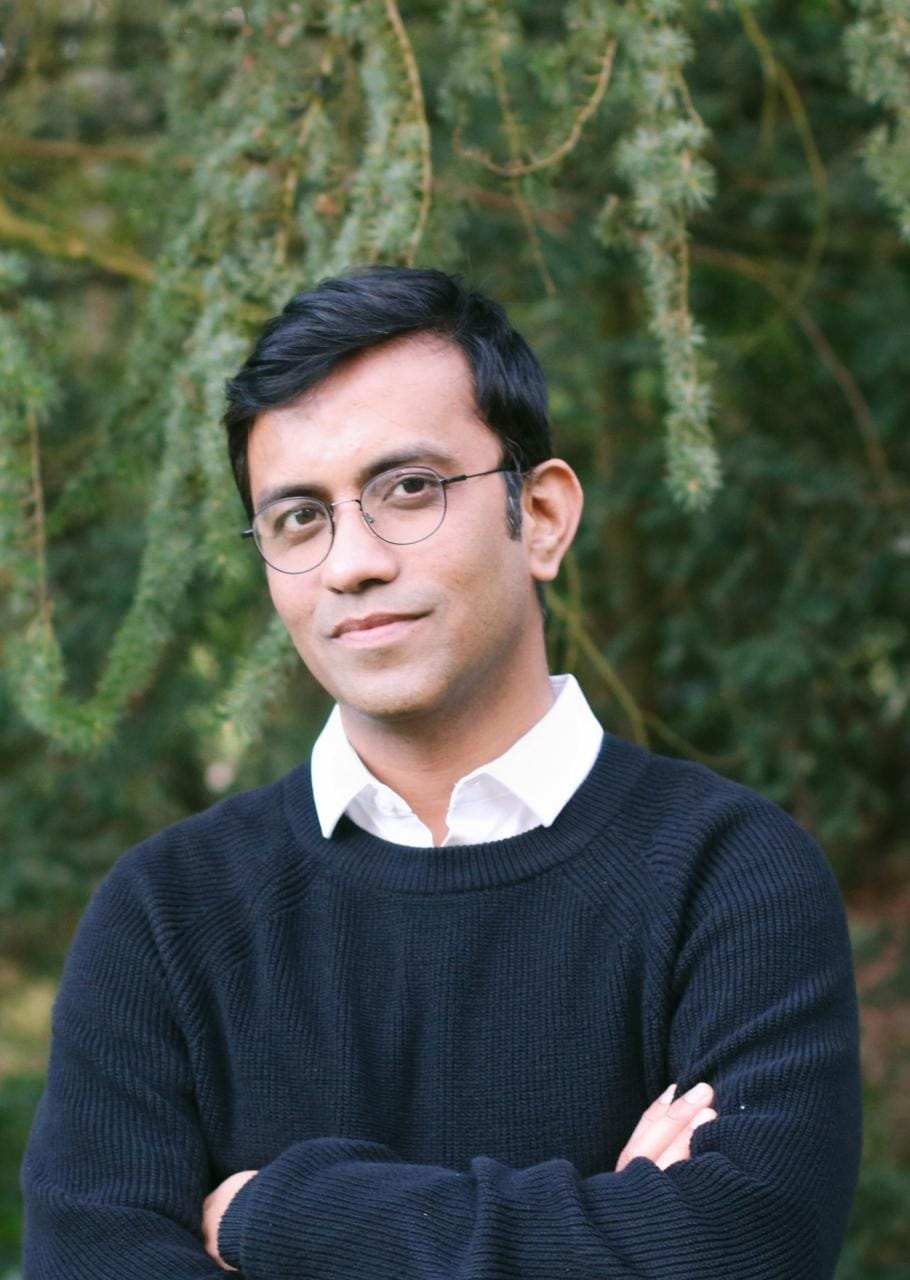
Surya Pratap Deka
- Scholar
- India
- 2021 PhD Education
- Fitzwilliam College
As an educator and researcher, I have spent thousands of hours in classrooms across India, exploring why some research translates to meaningful change in schools and why some don’t. My doctoral study seeks to envision a rigorous and humane research architecture in education that engages with epistemological diversity and aims to transform schools from within. Specifically, I will study how knowledge that emerges from critical and self-reflexive practitioner inquiry can enter into a horizontal dialogue with dominant knowledge paradigms to enrich both research and practice in emancipatory ways. Born in the north-eastern state of Assam, I bring to my doctoral studies a decade-long experience of running a free school for a disadvantaged community in rural India. Through Flourishing Minds Foundation, a non-profit organisation I founded in 2011, I have also engaged extensively with the larger educational ecosystem - schools, government bodies, multinational agencies and NGOs - to integrate neuropsychological research with lived experience to foster learning and well-being in schools. In the future, I intend to set up a research and advocacy institute in India that facilitates interdisciplinary work between practitioners and researchers in education.
Mary DeVellis
- Alumni
- United States
- 2021 MPhil Health, Medicine and Society
- Darwin College
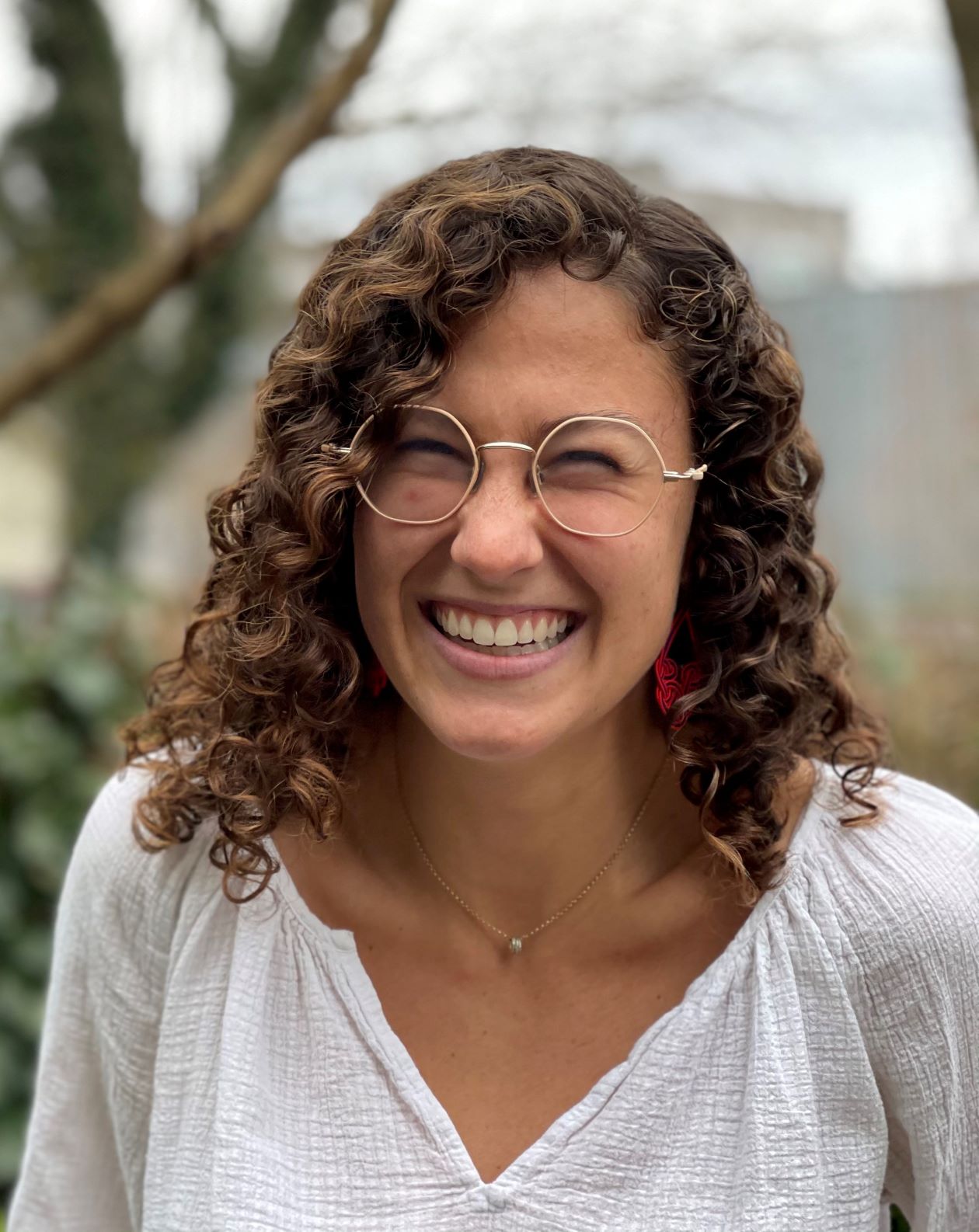
Mary DeVellis
- Alumni
- United States
- 2021 MPhil Health, Medicine and Society
- Darwin College
My experiences studying Medical Anthropology, Global Health, African Studies, and Gender Studies at Princeton expanded my understanding of social inequality and its impact on sexual health around the world. Through my ethnographic projects studying pregnant women during the pandemic and women using doula services, I recognized the lived experiences of women seeking healthcare amid various barriers. The chance to better these women's health options inspires me to continue my studies. After working on health equity in the US, South Africa, Vietnam, and New Zealand, I am eager to begin my MPhil in Health, Medicine, and Society at Cambridge to understand the social factors of health and wellbeing in a new cultural context. In my dissertation research, I will explore access to sexual health education for people with disabilities, both in the Cambridge community and internationally. After my time at Cambridge, I intend to attend medical school and practice as a women’s health physician. I am so honored and humbled to join such an outstanding community and learn from my fellow Gates Cambridge peers.
Previous Education
Princeton University Medical Anthropology 2021
Richard Diehl Martinez
- Scholar
- United States, Germany
- 2021 PhD Computer Science
- Churchill College
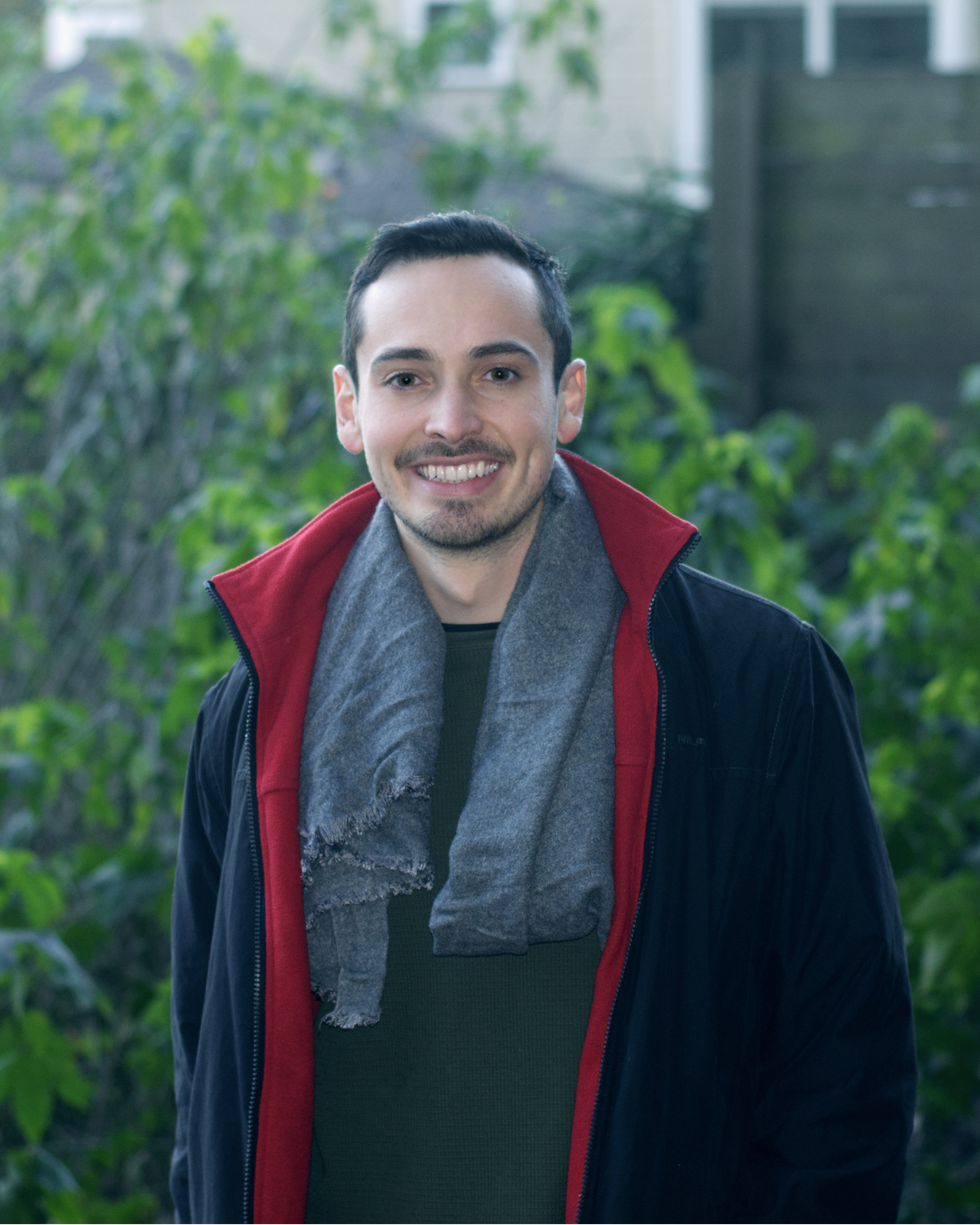
Richard Diehl Martinez
- Scholar
- United States, Germany
- 2021 PhD Computer Science
- Churchill College
Growing up in Guatemala and Germany, I have always been fascinated by the interplay of language and technology. My multicultural background led me to study a mixture of political science and economics, as an undergraduate student at Stanford University. Towards the end of my undergraduate degree, I became fascinated by the ability of machine learning to model complex cognitive phenomena. As a computer science master’s student at Stanford, I worked together with Dan Jurafsky to build deep learning models to automatically detect and remove bias in news articles. During my PhD in Computer Science, I hope to use insights from how the human brain understands language to improve machine learning and natural language processing models. By leveraging similar mechanisms used in the brain to process language, I believe it is possible to build models that require less data and computation and which can accordingly be more effectively applied to low-resource languages and domains.
John Dunford
- Alumni
- Ireland
- 2021 MPhil Innovation, Strategy and Organisation
- King's College
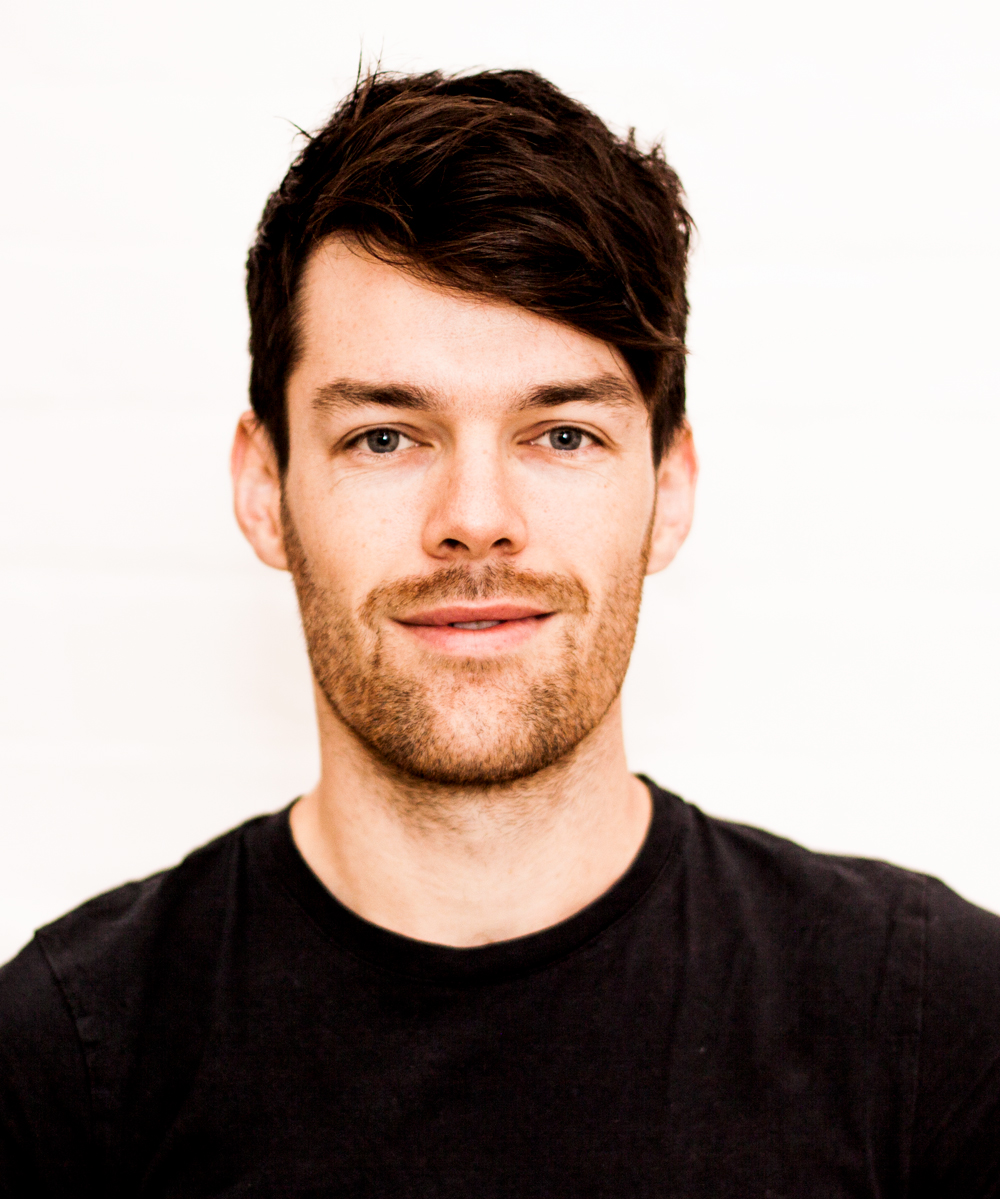
John Dunford
- Alumni
- Ireland
- 2021 MPhil Innovation, Strategy and Organisation
- King's College
With a greater understanding of how new ideas are generated and social innovations operate we can respond to the biggest challenges of our times in more supportive and positive ways. Since completing a BA in International Relations at Dublin City University and an MSc in Nature, Society and Environmental Policy at the University of Oxford, I have worked to create impact in the third sector. With Greenpeace, Oxfam International, The Syria Campaign and then as CEO of The Developer Society, a nonprofit cooperative delivering tech for good projects, I have had the chance to support hundreds of leading charities and NGOs to use technology to deliver on their missions. I have seen first hand how the power of innovation can drive immense change. At the Cambridge Judge Business School, my PhD research will build on the work of my MPhil exploring the conception of risk in nonprofit and humanitarian projects using emerging technologies. It is my belief that using innovation and organisational theory to generate knowledge in this area will help create more effective and impactful support for vulnerable people around the world. I am honoured to be a part of the Gates Cambridge community.
Previous Education
University of Cambridge ISO 2023
University of Oxford NSEP 2013
Dublin City University International Relations 2010
Rana ElRashidy
- Alumni
- Egypt
- 2021 MPhil Architecture and Urban Studies
- Queens' College
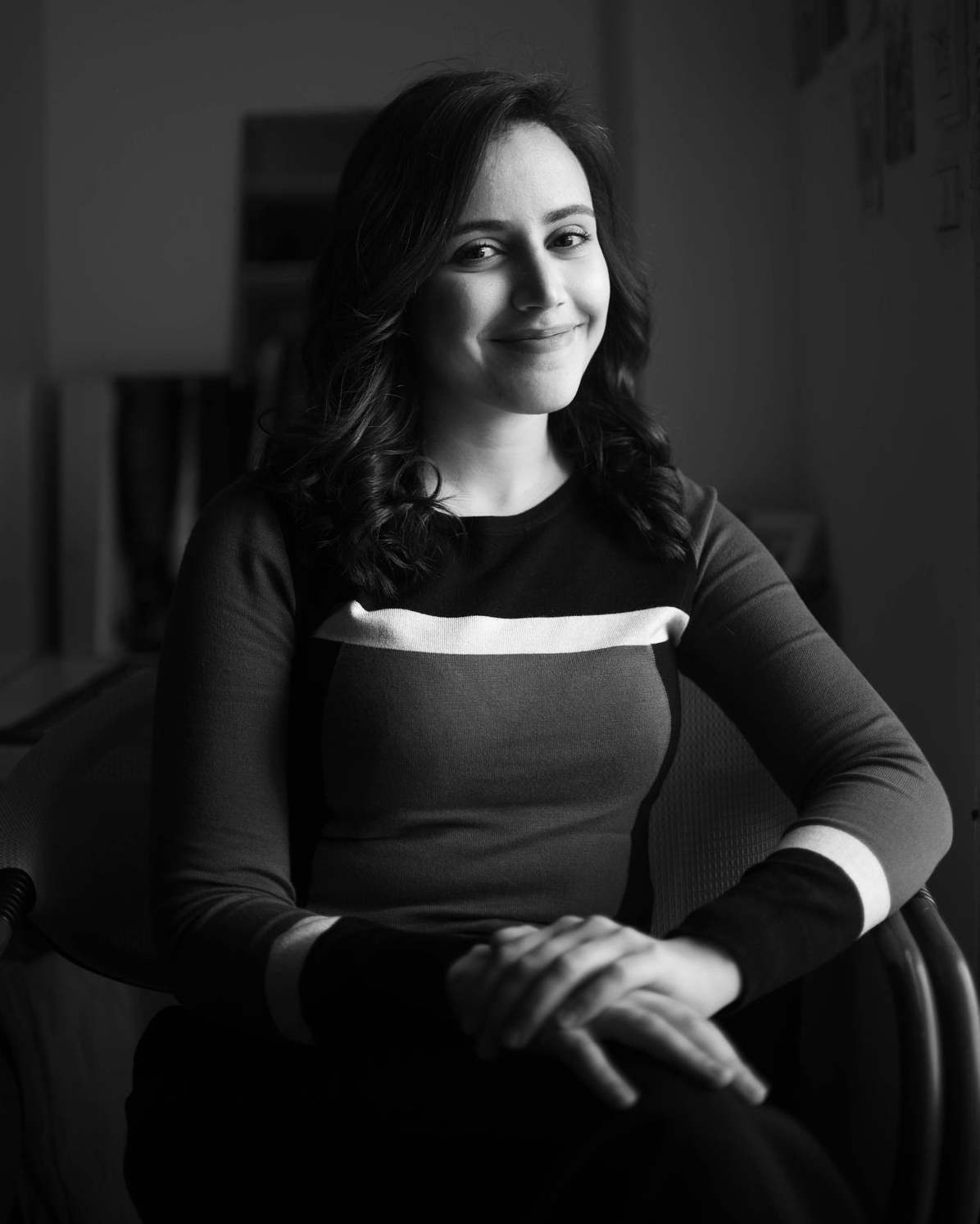
Rana ElRashidy
- Alumni
- Egypt
- 2021 MPhil Architecture and Urban Studies
- Queens' College
One saying sums up my conviction as a person and architect: "Many small people who in many small places, do many small things can alter the face of the world". As an undergraduate studying Architecture and Urban Design at the German University in Cairo, I have grown particularly interested in how urban space is deeply intertwined with socio-political dynamics. With most of the world residing in cities, I not only felt personally enmeshed as a citizen, or enthused as an urbanist, but I also feel deeply obliged to enhance the built environment and actively engage with the community across scales and social spectrums. I believe that this demands a continuous and thorough study of how cities function and are inhabited. As an Urban Studies student at Cambridge, I aim to research developing new cities and shed light on the Cairo unseen, by studying the often overlooked spatial manifestations of grassroots initiatives. I believe that academic efforts can and should inform more resilient approaches for policymakers and designers, to include the urban poor in Cairo and its many parallels worldwide. I believe it takes many small people with big ambitions and opportunities, such as the Cambridge Gates Fund, to impact the world.
Previous Education
German University in Cairo Architecture and Urban Design 2019
German University in Cairo Architecture and Urban Design 2017
Mateo Espinosa Zarlenga
- Scholar
- Ecuador
- 2021 PhD Computer Science
- St Edmund's College
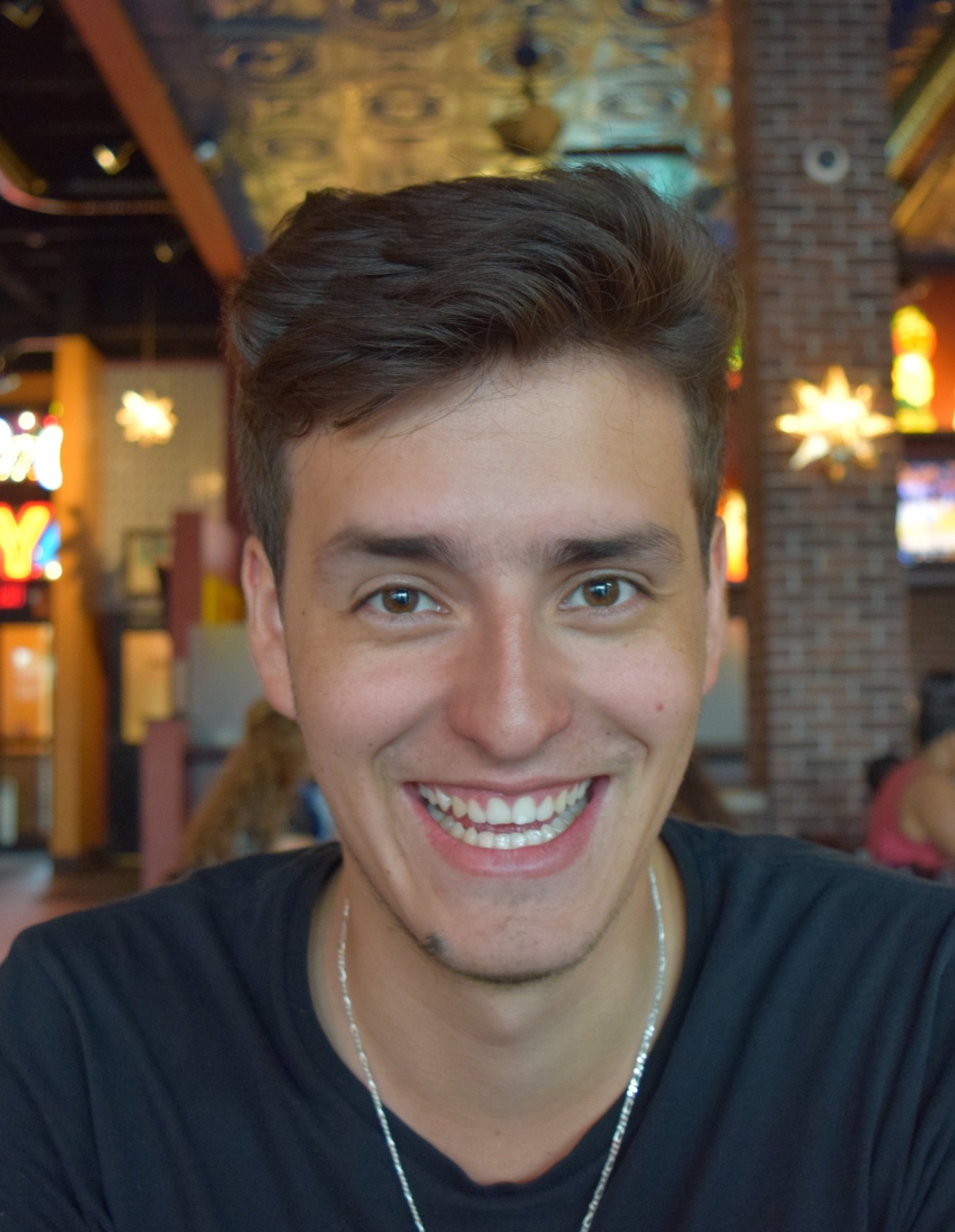
Mateo Espinosa Zarlenga
- Scholar
- Ecuador
- 2021 PhD Computer Science
- St Edmund's College
After growing up in Ecuador I was fortunate to have the opportunity to pursue an undergraduate and master’s degree in Computer Science at Cornell University. It was during this time that I was first introduced to the untapped potential of machine learning algorithms and their applications in both academia and industry. As I continued to explore these methods as an early employee of a machine learning startup and as an MPhil student in Cambridge, it became abundantly clear to me that the deployment of these algorithms is often constrained by their lack of interpretability. This is perhaps most limiting in healthcare settings, where transparency and accountability are of utmost importance. During my PhD I wish to explore ways to design high-performing machine learning systems that can learn to explain their decisions using concepts that are intuitive to users. If successful, the deployment of such systems in day-to-day medical diagnosis could not only provide opportunities for early intervention in critical patients but may also open new leads for research in fields outside of medicine. The possibility of achieving these prospects, and the challenge they represent, make this research something I am incredibly excited to pursue.
Previous Education
University of Cambridge Advanced Computer Science 2021
Cornell University Computer Science 2017
Yassir Fathullah
- Scholar
- Sweden
- 2021 PhD Engineering
- Peterhouse

Yassir Fathullah
- Scholar
- Sweden
- 2021 PhD Engineering
- Peterhouse
The idea of versatile models able to identify and utilise complex patterns in data has always been an intriguing part of Information Engineering. Whilst studying at the University of Cambridge, I conducted multiple research projects with a special focus on a family of such models called deep neural networks. Applied to areas ranging from speaker diarisation to active learning, I slowly started to understand the wide ranging applicability, but also drawbacks of this family of approaches. One of these drawbacks is the lack of uncertainty estimation, the ability to account a model’s prediction to various causes of uncertainty, and this is where I will focus my research. I plan on developing efficient neural networks that will be able to quantify different types of uncertainties, and apply them in both high-risk and sensitive domains, where previously, such models would not have been applicable due to a limited understanding of how and when they work.
Previous Education
University of Cambridge Eng. Tripos (Information Eng.) 2021








